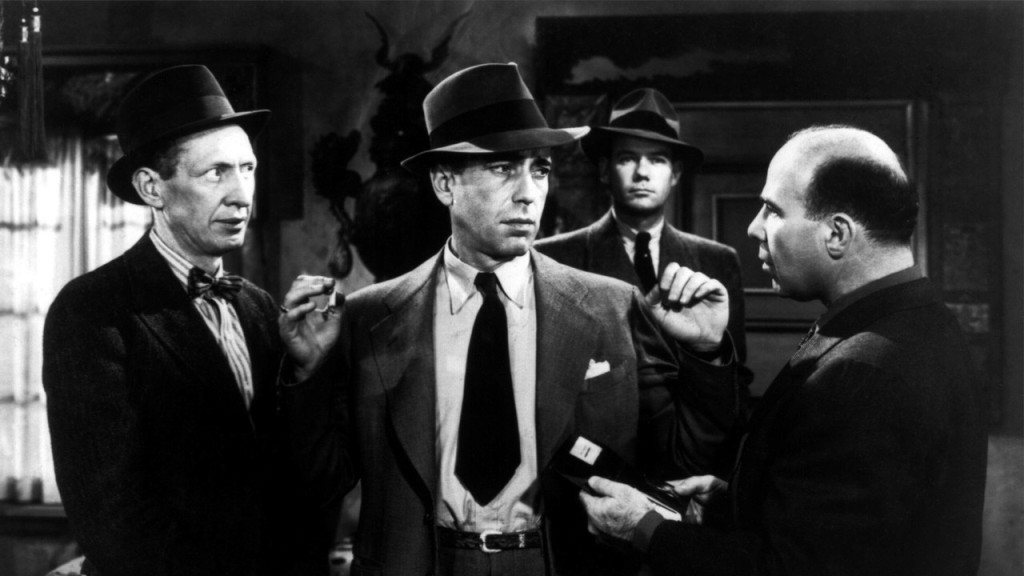A decade is a long time to wait for a sequel. It’s a very long time. When the original Sin City was released Pete Travers of Rolling Stone hailed its success as a two-fingered salute to the values of Bush’s America. And yet even he’s bored senseless by its belated follow-up, because, lest we forget, 9 long years have passed…
Bush’s America now exists only in the pages of self-justificatory memoirs, and endless hostile polemics that seem ever more embarrassing as Obama; from drones to Guantanamo Bay to blanket surveillance; continues and amps up what he was supposed to dismantle. And the film landscape has changed beyond recognition. Back in 2006 studios still made 40 million dollar movies. Christopher Nolan could follow up Batman Begins with a small personal movie at that budget, The Prestige. Nolan now makes small personal blockbusters (Inception, Interstellar) between blockbusters. And even if he wanted to make a smaller movie he probably wouldn’t be allowed; its 5 million dollars or 150 million dollars now, nothing in between. And for Sin City, looming above the possibilities of the comic-book movie now is the monolith of Marvel Studios; which was a mere business plan back in 2005.
2005… Spider-Man and X-Men had both had two lucrative outings. Batman was about to roar back into the cinematic fray, after a disastrous attempt to spin out Catwoman. Fantastic Four were about to be the latest Marvel characters given a chance for glory after disappointments for Daredevil and Elektra. And Hellboy had proven an unlikely blockbuster hit for Dark Horse. But, and this seems grimly hilarious, Fantastic Four was greeted with a universal groan of “Oh no, not another comic-book movie!” The clichés that bedevil the genre were already glaringly obvious. And Sin City didn’t have them: no superpowers or origins. This alone would have made it original, but it was also a brave new world of CGI recreating the look and feel of a comic-book. But now, after two 300 movies, (and Watchmen…) even its visual originality feels hackneyed.
Back in 2005 I wrote about how comics are perhaps the closest medium to cinema, combining as they do images with dialogue and voiceover. And, after all, films are storyboarded scene by scene, which is to say – drawn like a comic-book. Sin City finally treated the frames of a comic-book as if they were the storyboard and Robert Rodriguez simply shot what was drawn by Frank Miller. I lamented that it was a pity they picked such a lousy comic for the experiment. Hysterically, a year before Heroes, I also lamented how comic-book stories are more suited to the serialisation possible in television but have to be blockbusters owing to FX budgets needed for convincing superpowers. More on point was my contention then that, with outrageous blockbusters comics like Mark Millar’s The Ultimates out there ripe for the Sin City comics as storyboard treatment, it was the studios not the comic-books that were dumb; as big budgets led to playing things safe. Guardians of the Galaxy is probably the closest we’ll get to a Mark Millar blockbuster, and take away the absurdities James Gunn has attractively and distractingly sprinkled and you’ll notice the customary perfectly predictable Marvel structure plodding away…
But arguably Sin City was a success in 2005 because it reflected the zeitgeist more than its sequel does now. In the era of torture porn, its opening vignette of Bruce Willis blowing off Nick Stahl’s hand and manhood seemed perfectly normal. Elijah Wood’s cannibal making Carla Gugino watch as he ate her hand, Mickey Rourke cutting off Elijah Wood’s arms and legs and leaving him to be eaten alive; all the violence that I found grotesque synched perfectly with Eli Roth’s work at the time. But that love of sadistic violence, which some critics implausibly interpreted as comedic, even clever by dint of its use of silhouette, isn’t present to the same degree in the sequel. Instead, and this is perhaps by accident rather than design, Sin City 2 amps up the sex – which places it neatly into the zeitgeist of Blue is the Warmest Colour, The Wolf of Wall Street, and Stranger by the Lake. It is unthinkable that Eva Green’s mostly topless/naked performance would not have excited a firestorm if it had been released a few years ago. In 2014 it’s slightly unusual but is more or less the new normal as Bret Easton Ellis might argue.
Sin City 2 isn’t likely to be seen by many people, which leads to an interesting side-note on what that says about the effect of onscreen nudity on Jessica Alba and Eva Green’s careers. Back in 2005 I praised Alba’s refusal to take her clothes off as stripper Nancy Callahan to satisfy the pervy hordes lusting at Miller’s porn-noir, dubbing it a giant punch against the liberal sexism of contemporary Hollywood. Eva Green, however, never had any such compunctions; as proved by her ridiculously over-exposed role in Sin City 2. But, while not getting her kit off has undoubtedly helped mute Alba’s career since Fantastic Four 2 to glossy horror (The Eye, Awake), terrible rom-coms (Good Luck Chuck, The Love Guru, Valentine’s Day, Little Fockers), and only the odd interesting film (The Killer Inside Me), getting her kit off hasn’t really worked out for Green, who has followed Casino Royale with TV shows (Camelot, Penny Dreadful), unseen movies (Cracks, Womb), and unmitigated disasters (The Golden Compass, Dark Shadows, 300: Rise of an Empire). Taking your clothes off apparently does not guarantee success. Indeed Alba’s rampage in Sin City 2 recalled her best role – her breakthrough network TV show Dark Angel.
If Sin City 2 is out of step with the zeitgeist, and its visual style no longer wows, it must be said there is another obvious reason for people’s lack of interest – Frank Miller… After two 300 movies, and The Spirit, audiences have evidently grown tired of Miller’s shtick. Sure The Spirit could be said to have put shackles on Miller’s vision by being a PG-13, but, freed from the ‘restraining’ influence of Rodriguez, in writing and directing his own original take on Will Eisner’s character we were getting the pure, unfiltered directorial vision of Frank Miller – and it was screamingly bad; not even laughably bad, just jaw-droppingly awful. It recalled nothing so much as the moment in The Bad and the Beautiful when Kirk Douglas’ producer takes over directing to get the most out of every single scene, and makes a total hames of the movie as a result.
Miller’s obsession with every single line being delivered in as macho a manner as possible is exhausting, indeed the only sane way to approach 300 is in the best Wodehousian manner – a sort of musical comedy without the music. Sin City 2 highlights Miller’s excruciatingly repetitive and witless writing. Miller will never describe a character like Raymond Chandler in The Big Sleep; “I pushed a flat tin of cigarettes at him. His small neat fingers speared one like a trout taking the fly”; or drop into interior monologue like Sara Paretksy in Indemnity Only: “‘I’m trying to keep people at the office from knowing I’ve been to a detective. And my secretary balances my checkbook.’ I was staggered, but not surprised. An amazing number of executives have their secretaries do that. My own feeling was that only God, the IRS, and my bank should have access to my financial transactions.”
But Miller’s idiocy is now going to sink the man who bafflingly shackled himself to such pseudo-noir: Robert Rodriguez. Rodriguez has undoubtedly gone downhill creatively since the parodic joy that was Planet Terror. Indeed he’s properly ghettoised himself with Machete and Machete Kills, while his only other feature outings since Planet Terror have been two unloved kids’ films. Sin City 2 was positioned to reach a wider audience than anything he’d made since the original Sin City, but it’s gone disastrously wrong. Once, Rodriguez was a man who made major summer horror movies, off-beat summer action flicks, and event movies (The Faculty, Once Upon a Time in Mexico, Sin City). But (zeitgeist time again…) then people started watching a lot of gleeful trash, streaming it in their homes… So now, it’s likely Rodriguez will become a schlocky cable showrunner, having just made his last movie to be released in theatres…
Sin City 2 cost somewhere over $60 million and made around $6 million on opening weekend. As TWC distribution chief Erik Lomis said “We stand behind the film, and … never expected this level of rejection. It’s like the ice bucket challenge without the good cause.” …The Big Fat Career-Killer.




